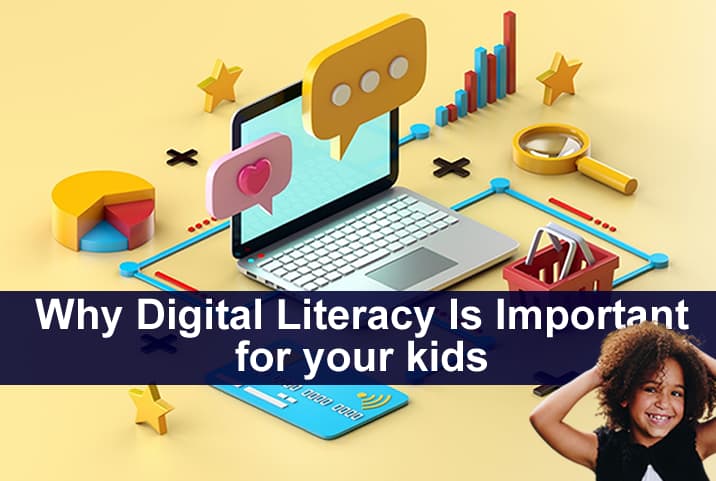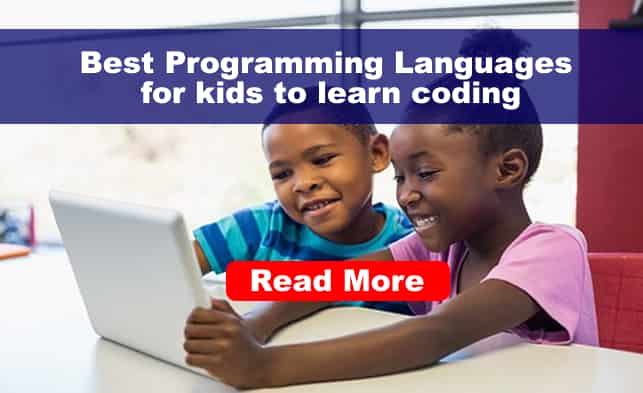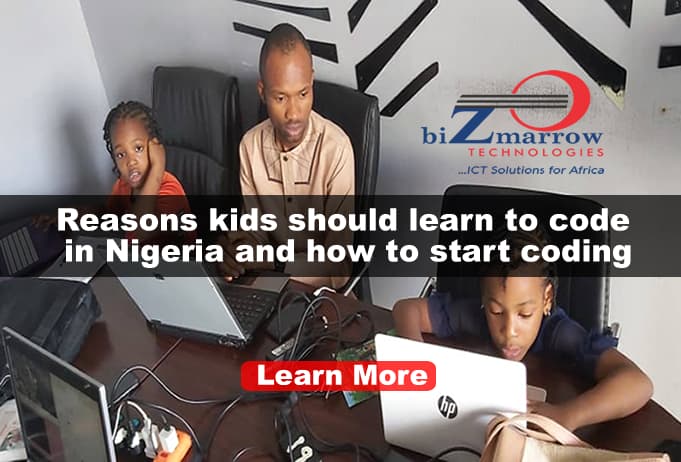The importance of learning coding in Nigeria can’t be overemphasied because computer programming teaches people how to experiment and gives them the confidence to be creative.
Both young and old people will have the chance to design something that is entirely their own. youths thrive off of the feedback they get from creating something they love.
Just like learning a language, or to play a musical instrument, children and youths need motivation. Usually seeing results along the way is enough to cultivate this, and this is what happens when children learn to code.
Here are the reasons why coding is important
The Benefits and importance Of Learning Coding ?
Coders are in high demand
As mentioned, according to Code.org, 67% of all new STEM jobs are in computing, yet only 11% of STEM graduates are in Computer Science. That’s a serious shortage of CS majors.
Coding provides a competitive advantage when applying to colleges, internships, and jobs
If you possess a hot skill that many of your peers lack–such as the ability to code–you instantly appear more desirable in the eyes of potential college admissions officers and employers. Plain and simple.
With coding knowledge, students better understand the world around them
Most of us don’t know the first thing about what makes our smartphones, laptops, social media networks, and video games run. Basic programming knowledge can change the way we interact with the technologies we use (and take for granted) daily, and can open our eyes to the infinite possibilities of coding.
Coding is fun and satisfying
While programming is logic-based, it’s also an extremely creative activity. If you know how to code, you can develop the aforementioned apps, video games, websites, and more!.
For many developers, part of the appeal of coding is the challenge and reward of seeing their code come to life after a good debugging session. Don’t be fooled, however–with the right instruction, getting started with programming can be easy and fun.
Coding improves creativity
When you learn a language, you use it to express yourself. The same is true with code. Computer coding empowers kids to not only consume digital media and technology, but to create it.
Instead of simply playing a video game or using an app, they can imagine making their own video game, or envision what their own website, or app might look like—and they’ll have the outlet for expression.
Coding improves problem solving
Coding helps those who are into it to improve their problem solving. When kids code, they take complex problems and break them down into smaller parts.
Kids learn what it’s like to approach a problem the way a software engineer does, with logical, computational thinking.
As Dan Crow, CTO of SongKick explains, “Computational thinking teaches you how to tackle large problems by breaking them down into a sequence of smaller, more manageable problems.” This logical thinking is a powerful tool in school, work, and life.
Coding improves persistence
Learning to code, like any new discipline, is a challenge. Thus, tackling complex problems—and making mistakes along the way—can be very frustrating.
Coding teaches the valuable skill of persistence in the face of such challenges. Learning how to problem solve and look for solutions through research and collaboration builds this highly desirable skill.
Coding improves collaboration
Every student can learn, and every student can learn how to code—kids can learn alongside others of every race, gender, or background. Kids meet and learn how to collaborate with all kinds of peers, all joined by a common interest in technology.
Many games, like Minecraft, also offer a bevy of educational benefits because they too involve coding, collaboration, and participation—with peers all over the world.
Coding improves communication
Communication is an absolutely essential skill throughout school, work, and life. People who can clearly communicate complex ideas in simple terms tend to be successful in different industries and walks of life.
When kids learn how to code, they learn how to communicate with the most simple-minded audience imaginable: computers. As mentioned, computer coding teaches kids and youths how to break down complex ideas and arrange them in a way that computers can understand.
These are digital skills training that can get you started in Coding
But with all of that, proceed with caution
We have seen the importance of learning coding, but what if a child does not want to learn coding?
OK, I’m not going to turn around now and say you shouldn’t learn to code, obviously, but more of…
Why just code?
It’s natural for such a simple question and the following related questions to crop up as you break down whether or not coding is right for you or your child:
What if my child doesn’t want to learn to code, specifically? Does that make them a failure?
Will they not have the chance to secure a cool internship down the road? A worthwhile job?
What if they want to learn to just “tech” instead? Is that a viable option?
What if they want to learn X? Or Y? Or Z? Will those things count in the future?
Likewise, if they only learned to code, and nothing else, would that take them to the top?
So, let me wrap up this section by saying me or whomever else urging you to “learn to code” is probably not doing so with the intent of the statement to be so exclusive.
I mean, you would never be encouraged to read, but not write. Or to learn your multiplication tables while throwing division out the window. Facebook was created by a programmer, but what would it be without design?
So, by all means, if you have a kid with a coding interest, then yes, help them to LEARN TO CODE. If they don’t have an interest, have never coded, and have other interests, still consider it, though. It’s that important, and you’ll be glad you at least gave it a chance.
But in the process, don’t forget about the other things. Help them learn to “tech,” and explore game development possibilities, 3D modeling, animation and printing, or video production if that’s what better suits them. Immerse in photography if that’s truly what they want to do as a hobby or even a future career.
Have them get skilled in marketing, negotiation, promotion, and more… or learn how to become a leader. There is a list of learning opportunities, and that list goes on and on. Coding can take you far, but you must also possess the complementary skills to make your creations thrive.
One of the most amazing things you’ll ever hear is that Steve Jobs didn’t code for Apple. Ever.
Can you believe that? If I asked you whether or not Steve Jobs was successful, you’d turn around and ask me if the sky was blue or if grass was green.
Jobs was one of the most successful people to roam the earth… not because he was a supreme coder, but because he knew enough to communicate a vision, and was wildly skilled elsewhere.
In the end, kids, teens and youths who want to capitalize on the abundance of computer science jobs in tomorrow’s landscape should be taking coding courses today. From the importance of learning coding we have seen, its clear learning how to code is very important, it is also important to learn other tech skills.










